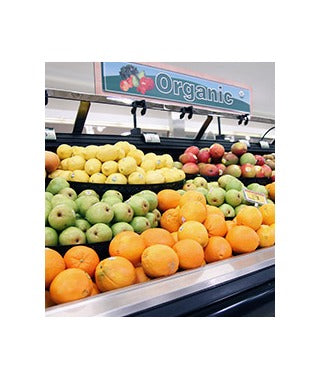Genetically modified organisms (GMOs) are plants or animals created through genetic engineering. In the United States, GMOs are in as much as 80 percent of conventional processed food. Avoiding them by carefully selecting non-GMO food and even non-GMO supplements such as Spirulina and Astaxanthin is highly recommended to avoid their potential health concerns.
GMO Foods and Supplements Put Your Health at Risk
In the United States, the foods at greatest risk for GMO contamination include corn, milk, flax, rice, yellow summer squash, zucchini, eggs and meat.
Benefits of Choosing Non-GMO Foods and Supplements
A 2012 Mellman Group poll found that 91% of American consumers wanted GMOs labeled, but there’s no federal mandate for it yet. You can choose non-GMO foods by checking the Non-GMO Project Verified list of approved products and selecting real, organic foods. If possible, grow your own fruits and vegetables and purchase organic, grass-fed meats. This way you avoid GMOs and provide more nutritious meals to your family.
Major health organizations like the American Academy of Environmental Medicine (AAEM) urge doctors to prescribe non-GMO diets for all patients. Other major health organizations such as the the American Public Health Association and American Nurses Association condemn the use of GM bovine growth hormone.
Manufacturers who grow and produce GMO foods are contaminating the environment and there’s a growing body of evidence showing GMO foods cause health problems.
It’s especially important to choose non-GMO microalgae like Hawaiian Spirulina and BioAstin Hawaiian Astaxanthin that are grown in a biosecure zone. For example, registered dietitian Ashley Koff says she keeps GMOs out of her diet by only choosing supplements that are Non-GMO Project Verified.
Finally, when you choose non-GMO foods and supplements, you’re telling manufacturers that you reject GMO and will help force them out of food production—a win for everyone.
Sources:
http://www.nongmoproject.org/
http://www.responsibletechnology.org/10-Reasons-to-Avoid-GMOs

